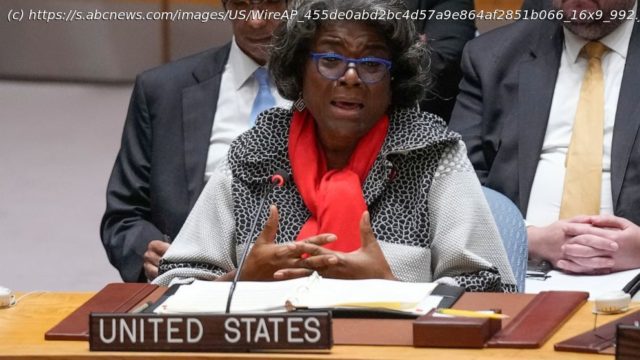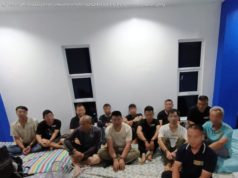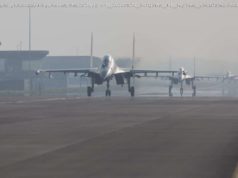Array
The United States and its allies on Monday strongly condemned North Korea’s latest intercontinental ballistic missile test and called for action to limit its nuclear and missile programs, but Russia and China opposed any new pressure and sanctions on Pyongyang.
U.S. Ambassador Linda Thomas-Greenfield told an emergency meeting of the U.N. Security Council that the Biden administration will be circulating a proposed presidential statement, which would condemn North Korea “for all its unlawful ballistic missile launches and other dangerous and destabilizing activity, » as well as call for Pyongyang to abide by U.N. sanctions banning all ballistic missile and nuclear tests.
Presidential statements — a step below a legally binding council resolution — require agreement from all 15 council members to be adopted, and the comments by Russia and China on Monday indicated resistance to any condemnation of North Korea’s action.
Russia’s Deputy U.N. Ambassador Anna Evstigneeva said the reason for the “increasingly provocative and increasingly dangerous” situation today is clear: “Washington’s desire to force Pyongyang into unilateral disarmament by implementing sanctions and exerting force.”
She pointed to a dramatic increase in military exercises by the U.S., South Korea and Japan, including a U.S.-South Korean navy exercise for missile defense systems involving destroyers on the eve of North Korea’s Nov. 17 ICBM launch, recent exercises using strategic bombers and a practice strike on the North’s ballistic missile installations.
Evstigneeva said such military measures and possible new sanctions threaten to create further tensions on the Korean Peninsula, “which can lead to unpredictable and dangerous consequences for the entire northeast Asia region.”
What the Security Council should do, she said, is “support inter-Korean dialogue and multilateral negotiations rather than becoming an impediment to them.”
China’s U.N. Ambassador Zhang Jun called for efforts “to cool down the situation,” restart dialogue “and try to meet each other halfway to prevent the situation from repeated escalation or even getting out of control.






